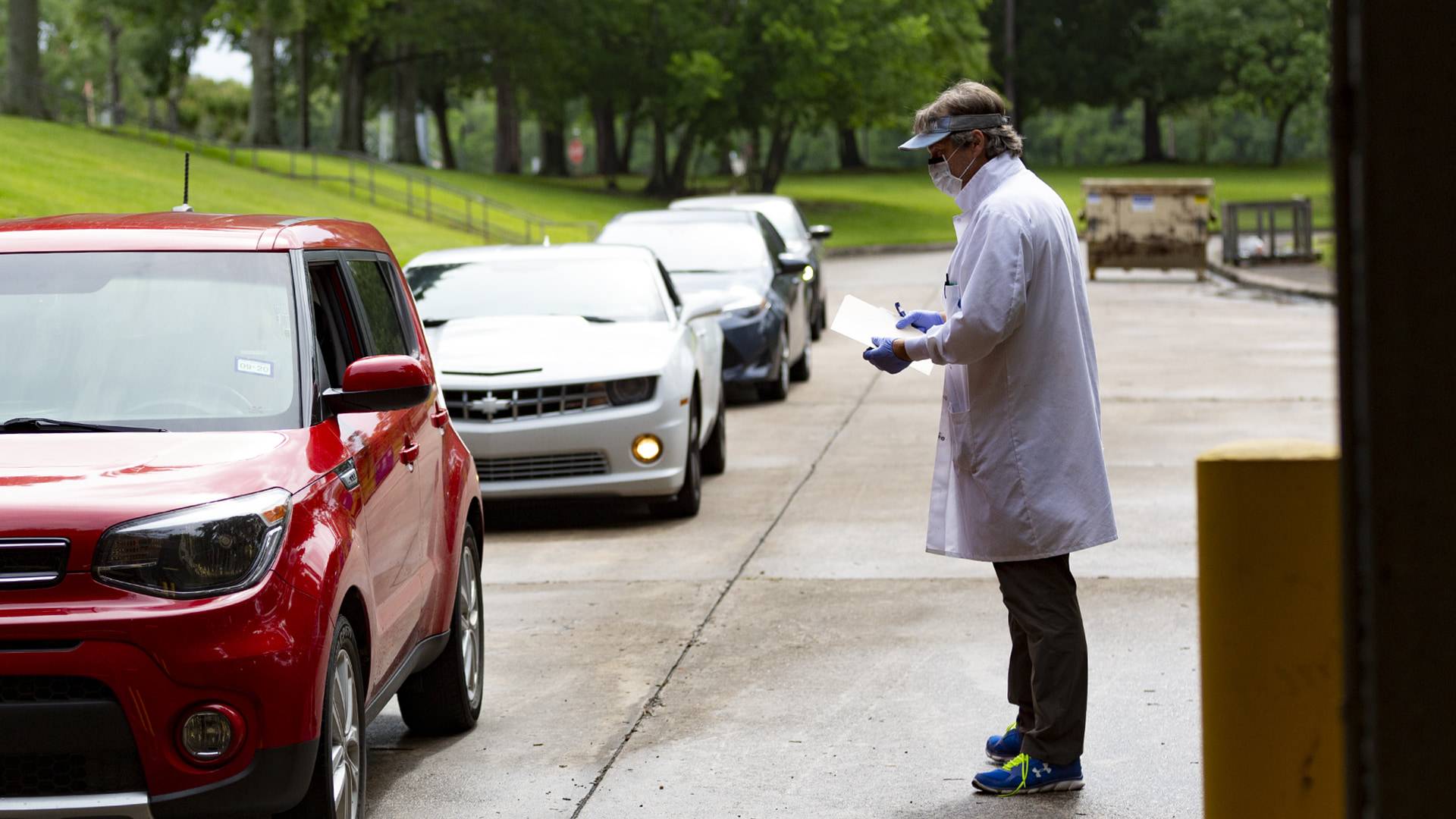- Future Students
- How to Apply
- Visit UHCL
- Admitted Students
- Tuition, Costs and Aid
- Degrees and Programs
- Contact Admissions
- Current Students
- Class Schedule
- Academic Calendar
- Advising
- Events
- Library
- Academic Resources and Support
- Student Services and Resources
- Alumni
- Lifetime Membership
- Alumni Events
- Update Your information
- Awards and Recognitions
- Give to UHCL
Microbiology, nursing, and software engineering students collaborate on COVID-19 grant
May 29, 2020 | UHCL Staff

Although the lights are off in the classrooms at University of Houston-Clear Lake, students and professors are still actively engaged in research to meet the urgent need to understand the spread of COVID-19. Assistant Professor of Microbiology Michael LaMontagne and Assistant Professor of Nursing Karen Alexander received a Rapid Response Grant for $50,000 from the National Science Foundation and now biology students, in collaboration with registered nurses in UHCL’s RN-BSN program and others, have begun doing just that.
LaMontagne said students in a laboratory course he teaches began a microbiome project in February. They proposed to analyze their own microbiome to determine how the bacteria associated with them relates to their overall health. “I had a set of students who were doing a nasal microbiome paper project this semester, laying the groundwork in terms of doing a literature search and validating protocols,” LaMontagne said. “They wrote a proposal stating they wanted to sample their nasal microbiomes because the presence of certain nasal bacteria relates to a person’s risk of catching flu, which is also a virus. We received funding to expand that to find out whether those bacteria could also protect the person from getting COVID-19.”
LaMontagne said they were recently awarded the Rapid Response grant, and are currently working with Assistant Professor of Nursing Karen Alexander’s students and collaborators at Sam Houston State University and McNeese State University. “We proposed to share our protocols and sampling with those partner institutions when we continue in the fall,” he said.
Alexander said that LaMontagne reached out to her for collaboration on the grant submission and clinical assistance in collecting the samples. “We are fortunate that we have students in the RN-BSN program who are registered nurses already working in the COVID-19 arena,” she said. “They are experienced nurses and they were more than willing to help.”
She said that many nurses who assisted were their taking community health course, or completing their leadership capstone course. “Collecting these samples helped them achieve their six hours of service learning, which is a component of their coursework. Many of my students are currently taking a course in community health or completing their leadership capstone course.”
She added that nursing students take an intensive research course, and this was an opportunity to put that research into practice. “This will develop into the evidence-based practice and that is what informs the patient care they deliver,” she said. Alexander said she got an overwhelming response from her students. “They wanted to participate, saying, ‘I am a nurse first,’” she said. “Students knew proper protocols and safety measures would be followed while they worked.”
Assistant Professor of Software Engineering Soma Datta said that her students will also be taking part in this project this fall. “Part of the grant that Dr. LaMontagne received is the creation of a virtual lab,” she said. “We are going to follow a storyboarding process in which students can download the software to their computer and create the components of a lab.”
She said that with their mouse, students would make it possible to move objects around, place bacteria on a Petri dish, perform their testing, all closely mimicking a real lab. “We’ll be working in tandem with the microbiology students. They’ll explain what they need and we will create it. This is what software engineering should really be,” she said. “We will be working on the demands of the client. This is all about collaboration and innovation. We are super excited about this.”
Once the virtual lab is created, Datta said, biology students will always be able to use it. “This virtual lab will train microbiology students the way a flight simulator trains pilots. With a virtual lab, you can be at home and continue practicing. It will be very helpful for everybody,” she said.
Read more about UHCL's Biological Science, RN-BSN and Software Engineering programs online.






